What are the Causes, Effects, and Prevention of Soil Pollution?
Understanding Soil Pollution Definition, Causes, Effects, and Prevention:
Today pollution has become a very thoughtful topic to think about as we have heard the word “pollution” many times in our daily lives. It is a kind of problem on which we need to work at a global level.
Before discussing the causes and effects of soil pollution, alongside its prevention, we will discuss its meaning.
Pollution is contamination that humans spread intentionally or unintentionally in the environment. Pollution affects the ecosystem and brings negative changes. There are many categories of pollution; soil pollution is one of them. So, let’s discuss it here:
Table of Contents
Soil Pollution Introduction
Soil pollution is the contamination of soil with harmful substances. It occurs when humans add too many chemicals to the soil; This can happen through careless disposal of waste, intensive farming practices, or even natural disasters.
We can say soil degradation results from human-made chemicals or natural processes contaminating or destroying a land’s soil environment.
Did you know that there are various components found in soil? Minerals comprise the largest component of soil, accounting for approximately 45%, followed by air and water, each comprised 25%, and organic matter, which constitutes 5%.
What Are the Causes of Soil Pollution?
Please remember, there are many causes of soil pollution, but we have gathered only the main and severe ones here:
Oil Spills
An oil spill can be explained as releasing a liquid petroleum hydrocarbon into the environment, especially in the ocean/marine ecosystem.
When an oil tanker leaks oil into the environment, the oil can seep into the ground and contaminate the soil. This can have a devastating effect on plant life and wildlife. Oil spills can also cause water pollution if the oil contamination spreads to nearby waterways, eventually contaminating the soil.
Mining
Non-Eco-friendly mining contributes to many industrial and human activities. Mining processes release chemicals into surface water or groundwater, which are then mixed with soil to cause soil pollution.
When mining operations extract minerals and other materials from the earth, they can disturb and damage the surrounding soil. This can cause erosion, the release of toxins, and other related pollutants that can make the soil unsuitable for plant growth.
“As per the Australian Bureau of Statistics, the amount of waste deposited in landfills increased by 12% between 2001 to 2007, from 19 million to 21.3 million. In 2007-08, an alarming 16.8 million TV and/or computer units were disposed of in landfills”. So, you can imagine the 2022-23 condition now !!
Acid Rain
Both natural and human-made reasons can lead to acid rain. It is caused when rainwater absorbs pollutants from the atmosphere, including sulfur dioxide and nitrogen oxide. These pollutants react with the water to form acids, which can then fall to the ground and cause pollution. Acid rain can damage vegetation, reduce crop yields, and make the soil less hospitable for plant growth.
Intensive Farming
Intensive farming can lead to soil pollution in a number of ways.
- First, the overuse of agrochemicals such as pesticides and herbicides can contaminate the soil.
- Second, the over-grazing of livestock can strip away vegetation, leaving the soil exposed to erosion.
- Third, the use of heavy machinery can compact the soil, making it harder for plants to grow.
These non-sustainable activities can lead to a decline in soil quality, which can, in turn, lead to reduced crop yields and other problems.
Industrial Accidents
One of the causes of soil pollution is industrial accidents. These can include oil spills, chemical leaks, and even mining accidents.
When these accidents happen, they often release hazardous materials into the environment. These materials can contaminate the soil and water, making it unsafe for plants and animals to live; This unfortunate or unwanted experience can cause a threat to life, injury, or disease.
Human Waste
Domestic waste, which is not biodegradable, is spread by humans in the environment. When people don’t properly dispose of their waste, it can end up in the soil. This can contaminate the soil and make it dangerous for plants and animals. Therefore, it is a major cause of environmental pollution.
Nuclear Waste
Nuclear waste is highly toxic to our environment. It also contains various chemicals that are not good for the soil; it decreases soil fertility and causes soil pollution.
Nuclear waste can also take thousands of years to break down, so it can continue to pollute the environment and soil for a long time.
Landfills
Landfills are one of the causes of soil pollution. When garbage is dumped in a landfill, it decomposes and produces leachate, a liquid that can contaminate the soil and groundwater.
As we produce more and more disposable stuff, the lands are overflowing with garbage worldwide.
The water below the ground is getting contaminated, and severe land degradation is occurring as a result of these landfills.
Landfills also release methane gas, a greenhouse gas contributing to global warming.
“In 2010, the US generated about 250 million tons of trash. Approximately 85 million tons of trash was recycled”.
Deforestation
Cutting trees in large amounts, i.e., ruining the forests, is known as deforestation. When forests are cleared for land development, the natural vegetation that once held the soil in place is removed. Without this vegetation, the soil is more vulnerable to erosion from wind and water.
Trees play an essential role when flood and heavy rain occurs. The roots of trees help to hold the soil in place, preventing erosion. Without tree roots, the soil can be washed away by heavy rain or blown around by strong winds.
Fertilizers
When fertilizers are used, they release nutrients into the soil that plants can take up. However, if there is an excess of synthetic fertilizer in the soil, it can lead to soil erosion. Human uses it in an extra amount which can make the soil acidic; This ultimately leads to agricultural pollution.
What Are the Effects of Soil Pollution?
There are numerous effects of soil pollution; we have gathered major and severe ones:
Severe Health Effects on Humans
As we all know, our food comes from the soil. We fill our stomachs with food that comes from the crops we grow on land. And if we pollute the soil, we cannot use it anymore.
Soil pollution can affect human health in various ways. For example, exposure to contaminated soil can lead to skin irritation, nausea, vomiting, and diarrhea. In severe cases, it can lead to organ damage and even death. Also, breathing in dust particles from contaminated soil can cause respiratory problems such as asthma and bronchitis. Therefore, soil pollution is a severe problem that should not be taken lightly.
Bad Effects on Plants
When the soil is contaminated again and again because of those poisonous chemicals and materials, there will be a time when it will stop supporting plant life in it. The soil will lose its productivity and the ability to grow plants. The pollutants can damage the roots and make it difficult for the plant to take in nutrients; This can lead to poor growth and poor plant health.
Effects on Microorganisms
Soil pollution has a variety of effects on microorganisms. The most direct effect is the contamination of soil with toxic chemicals, which can kill or inhibit the growth of microorganisms. This can lead to a loss of biodiversity and a decrease in the overall number of microorganisms in the soil. Soil pollution can also change the structure and function of microorganisms in the soil, making them less able to perform essential ecosystem functions such as decomposition and nutrient cycling.
Effects on Economic Activities
If soil pollution takes place, it will also carry economic losses with it. One effect is that it can lead to decreased crop yields/production; This happens because polluted soil doesn’t have the same nutrients as healthy soil.
This can lead to farmers having to use more pesticides and fertilizers, which can increase costs. This can further lead to financial loss for farmers and decreased food quality.
Soil pollution can also lead to health problems in people who come into contact with it. These problems can result in absences from work, higher medical costs, and lost productivity. In some cases, soil pollution can cause environmental damage that is expensive to clean up.
Loss of Minerals
As we all know, soil has so many minerals that plants extract from the soil as nutrients. Some essential minerals which are found in soil are – Sulphur, potassium, nitrogen, phosphorus, magnesium, iron, etc.
Soil pollution can cause the loss of minerals. This is because pollutants can bind to minerals, making them unavailable for plant uptake.
Soil Erosion
There are various human-made and natural factors that lead to soil erosion. For example, when the top layer of the soil, known as topsoil, moves from one place to another, it leads to soil erosion. When it is washed or blown away, plants cannot grow as well; This can lead to a decrease in crop yields, which can have a significant impact on food production.
Prevention of Soil Pollution
Please remember prevention of soil pollution starts from our home garden, and every human has a responsibility towards it, so read the points carefully:
Generating Energy from Waste Products
We can stop soil pollution by producing our own energy from our waste products which are called biogas. The largest energy source in the making of biogas is methane gas. The animals and human manure together help to make biogas.
After the gas extraction in the biogas process, the mud left can be used as a fertilizer for crops. “Biogas is a mixture of carbon dioxide, methane, hydrogen Sulphide, siloxanes, and some moisture.”
Adopting Organic Farming
Agriculture and food industries have become almost inorganic. So, we must keep the agriculture and food industries clean and prevent the soil from the poisonous chemicals flowing from those industries. To stop that, we can switch to organic farming. There are many benefits of organic farming that will promote good health among us and maintain ecosystem balance.
Improving Waste Management Practices
Poor waste management is another major contributor to soil pollution; This includes things like improperly disposing of hazardous materials, not recycling, and littering.
As soil pollution occurs in soil, we should keep the land clean to prevent land pollution. We shouldn’t throw trash here and there. People should use dustbins for collecting trash in one place. We have to throw all the junk in it instead of spreading it everywhere. Improving our waste management practices can help to reduce soil pollution.
Companies can reduce trash by using less packaging on their products. Things like smaller, thinner plastic, bottle caps, and more compact packaging have played a major role in reducing the amount of trash and hence preventing soil pollution.
Avoiding the Use of Harmful Chemicals
We should reduce the number of fertilizers for our crops as excess fertilizers make the soil acidic and can pollute soil and groundwater. So, it is crucial to avoid using them unless absolutely necessary. If they must be used, they should be used according to the manufacturer’s instructions.
Educating Others About Soil Pollution
Educating others about the importance of preventing soil pollution can go a long way in protecting our planet. By spreading the word, we can all work together to keep our soil clean and healthy.
Also, control measures of soil pollution are not only related to humans. Many animals are affected by soil pollution, whether it’s from chemicals or litter. Other living organisms also have the same right to live in a fresh environment. And the human is making this environment polluted by their unacceptable activities.
By getting involved in animal protection organizations or simply educating yourself on the issue, you can help make a difference for these animals.
Make Compost
Finally, we can help prevent soil pollution by composting food scraps, yard waste, and animal waste instead of sending them to landfills. This helps keep harmful chemicals and pollutants out of the soil while also providing a nourishing addition to your garden.
Some standard environmental remediation analyzed by environmental scientists are as follows:
Thermal Remediation
Introducing heat raises subsurface temperatures to remove the soil contaminants present in the groundwater and soil.
Bioremediation
By involving microbial digestion of certain organic chemicals. It is a process in which living organisms like bacteria and microbes are used to remove harmful substances from the soil.
Mycoremediation
By using fungus to metabolize contamination and accumulate heavy metals. It means using fungi to remove contaminants present in the soil. Fungi have the ability to absorb and settle the pollutants like metals etc.
Conclusion of Soil Pollution
Nature always gives its feedback. “As you sow, so shall you reap.”
If you are giving your efforts to make our nature beautiful, you will eventually make it beautiful. But if you are playing with it and making it hell, then be prepared to tolerate its hazardous results.
If the soil is contaminated, then the fertility of the soil will decrease, and the growth of crops and vegetation will be affected. As a result, the land will be converted into depleted land.
Soil pollution is a huge environmental issue that needs to be addressed. It can have devastating effects on the quality of the soil, which in turn can impact plant growth and food production. If we want to protect our environment and our food supply, we must take steps to reduce soil pollution.
Humanity needs to know and accept its limits of involvement in nature. It is nature that has created life on earth. So, how can we even try to manipulate this nature? Our responsibility is to maintain the balance of nature and also to handle waste correctly.
Here in this article, we have tried to understand what are the causes of soil pollution. And what are the effects of soil pollution? And the most important thing is the prevention of soil pollution of our environment from this severe problem.
Respect Nature. Nature Will Love You, Hurt Nature, Nature Will Leave You!
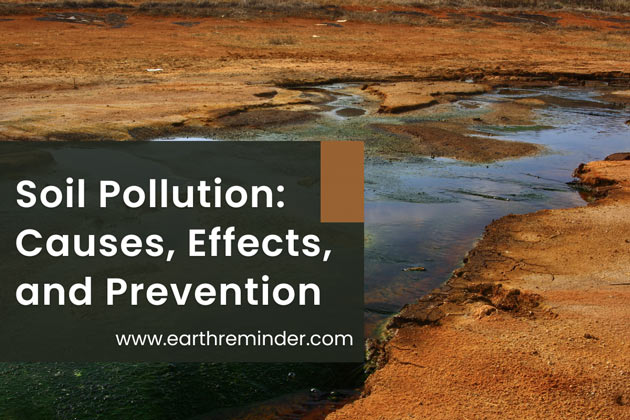
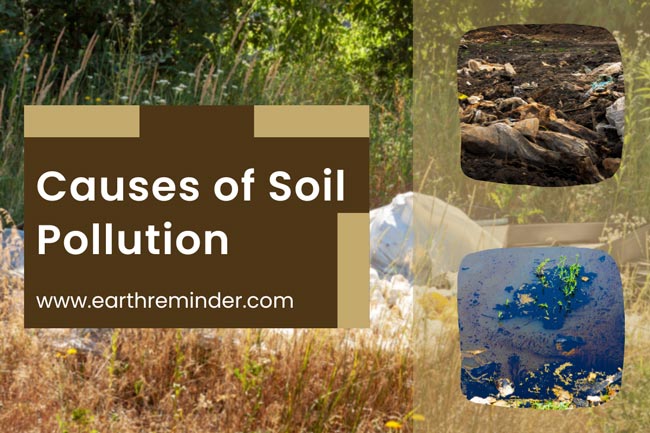


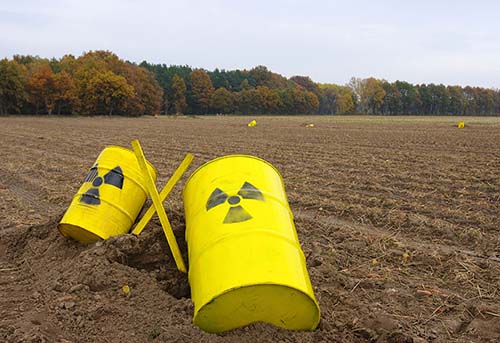
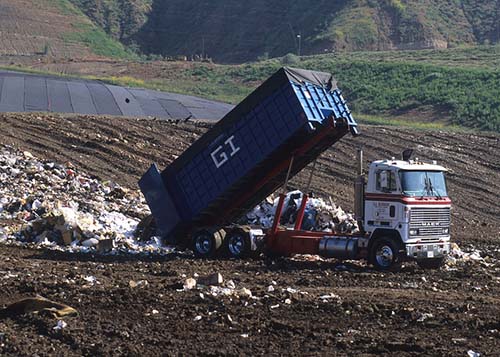
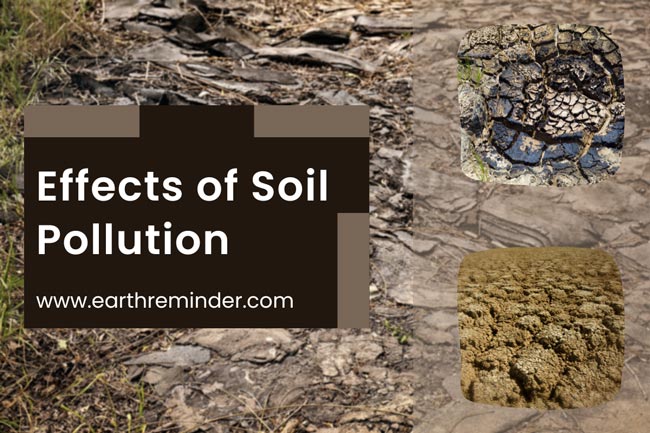
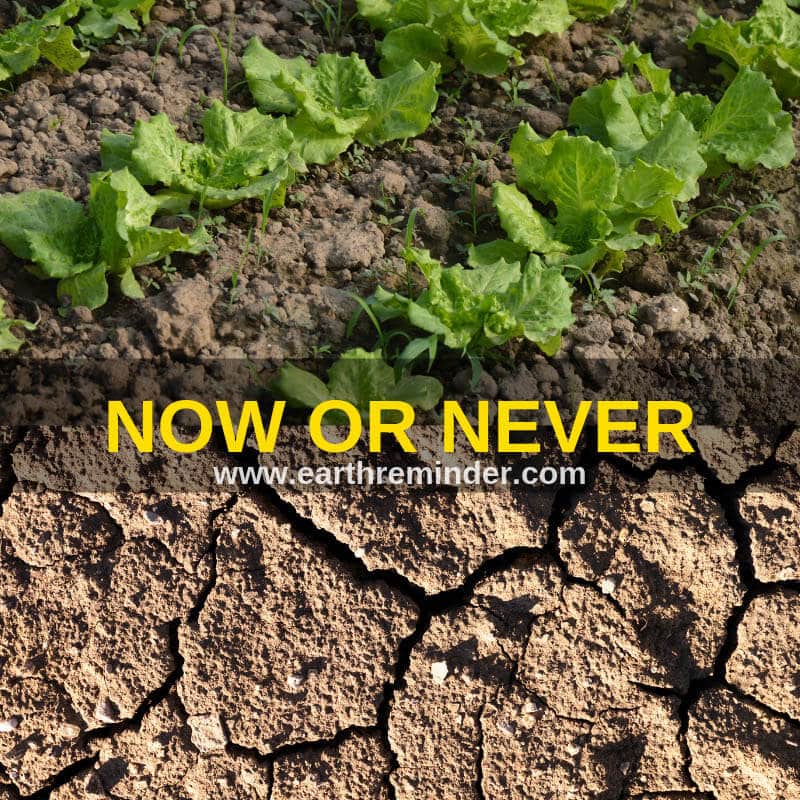
I too think so , perfectly indited post! .